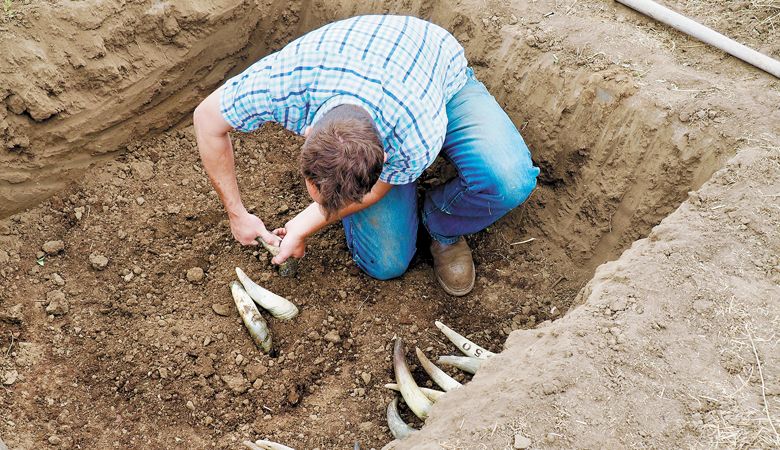Troon Renaissance
Historic Applegate vineyard goes Biodynamic
By Barbara Barrielle
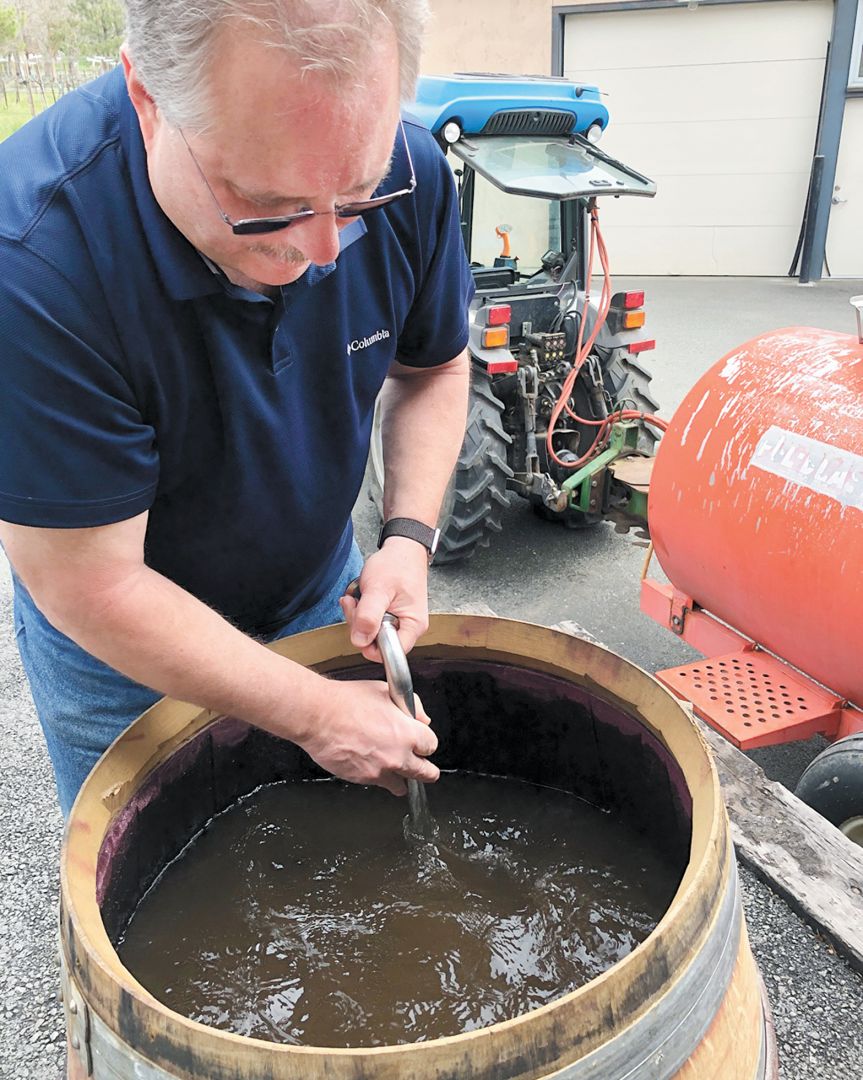
Troon Vineyard is a story of rebirth, regeneration and rediscovery.
In 1972, Dick Troon planted some of the first wine grapes since Prohibition in Southern Oregon. He bottled his own wine in 1976, converting a barn into a working winery. Troon Vineyard has since changed hands a couple times and greatly expanded, yet the iconic name remains, honoring the man who pioneered winegrowing in his beloved Applegate Valley.
The current owners, Denise and Bryan White, from Arlington, Texas, were visiting their daughter in Oregon and started looking at vineyard properties. With the purchase of Troon Vineyard in 2017, the couple started “a new entity on a new voyage with a new mission” and set about resurrecting the neglected land as well as giving new life to the brand that had languished in recent years.
Integral to the successful relaunch was general manager Craig Camp. With extensive experience at Cornerstone Cellars in Napa and Anne Amie in Oregon, he was now charged with transforming Troon into a Biodynamic farming operation and creating beautiful wines from the rejuvenated earth. At the 100-acre ranch, 45 acres are planted to wine grapes; these existing vines are being replanted in a rotating process as the soil recovers.
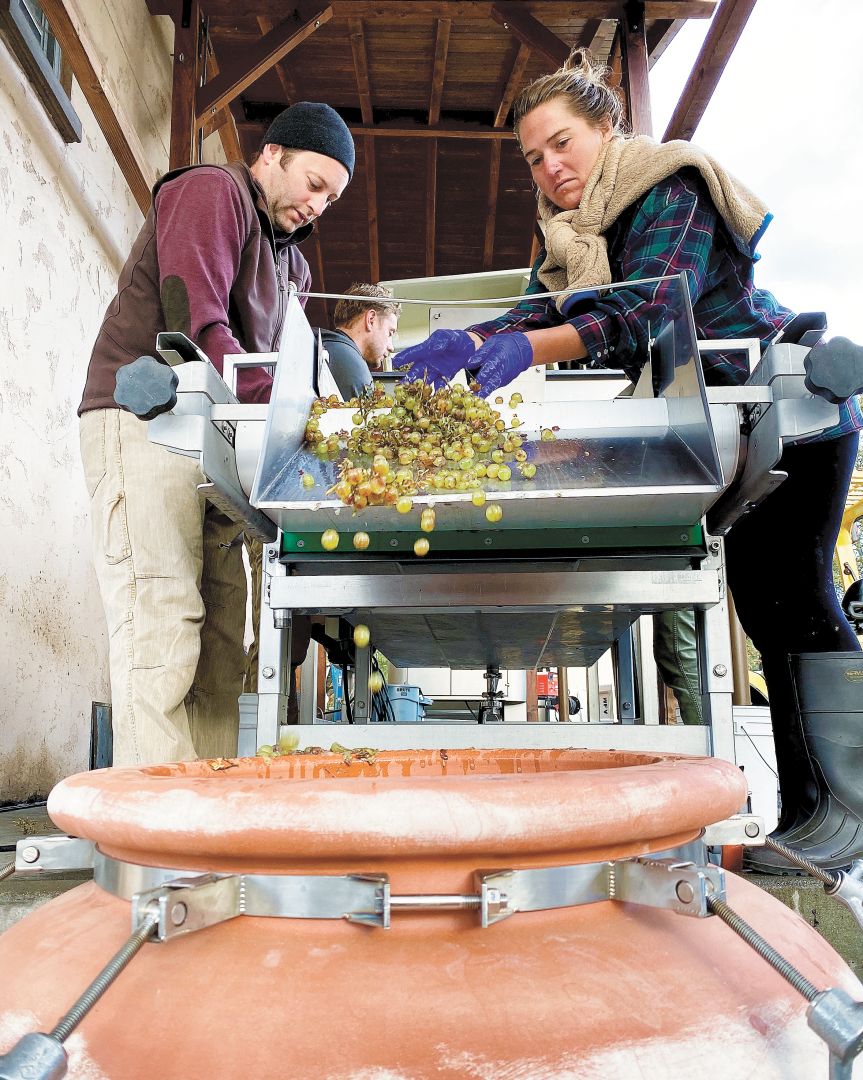
Crucial to recovery was the wholehearted adoption of Biodynamic standards. Troon’s new team never hesitated but went directly to the heart of revitalizing the land through concentrated efforts. Camp is no doubt the backbone of the winery’s turnaround and his relationship with renowned Biodynamic winemaker Bill Steele of Cowhorn Vineyard planted the seeds for Troon’s renaissance.
Bill and Barbara Steele moved from Wall Street to carve a path of land preservation for future generations. They were advised by Biodynamic expert Alan York; he told them to “show everybody everything you do.” The Steeles firmly believe they’re there to assist others with the same commitment to Biodynamic farming. “If we can’t help Troon, then what are we doing as a community partner?” Steele said. “I have known Craig for three years, and I can’t say enough about him. The Whites bought into Biodynamics and healing the earth, and that property is healing itself day by day. The earth is amazingly resilient.”
Troon, fully dedicated to Biodynamics and sustainability, earned a coveted Demeter certification after only three years. To achieve this, the land’s renewal was crucial, including improving the health of existing vines as vineyards await replanting. They have phased out the existing Troon wines in the marketplace, now solely creating wines from healthy grapes — some of the fruit comes from Cowhorn until Troon is able to fully sustain estate bottlings. With Cowhorn’s stellar reputation as a Rhône-style producer, the fruit now going into Troon wines during the transition is of unquestionable quality.
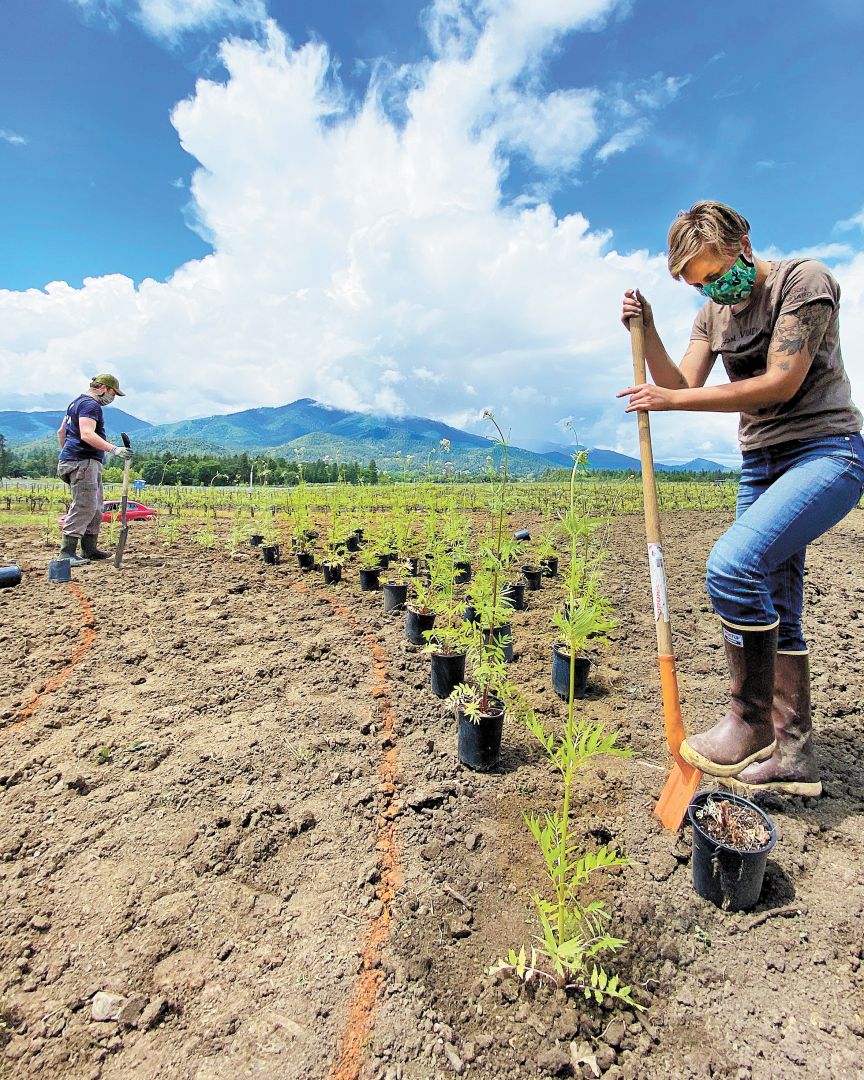
Troon’s wines are making waves in the market, obtaining awards and recognition as well as distribution in 18 states. With 1,000 club members and measured increases in production, Troon possibly will grow from 5,000 to 9,000 cases. “[The goal is to] be a small niche brand that connects with wine shops and wine bars with an interest in Biodynamic and natural wines,” Camp said.
He thoroughly enjoys the challenge and the possibilities at Troon, happily exclaiming about the return of life, birds and worms. “There is an apple orchard, so we plan to produce a range of ciders, redevelop the pastures, grow grains for local brewers, raise chickens and develop two areas for heritage vegetable varieties,” Camp explained. “We have bee habitats for native bee species and are propagating our own seeds. Troon is reminiscent of southern France with their Rhône varietals and healthier plants through Biodynamics.”
The winery’s reemergence is not going unnoticed. “Troon’s resurgence is giving wine professionals and fine wine consumers from around the world another reason to discover Oregon,” noted Tom Danowski, Oregon Wine Board president/CEO. “Craig’s leadership is propelling the winery and the Applegate Valley into prominence with a focus on exceptional Rhône-style wine quality and regenerative farming and business practices.
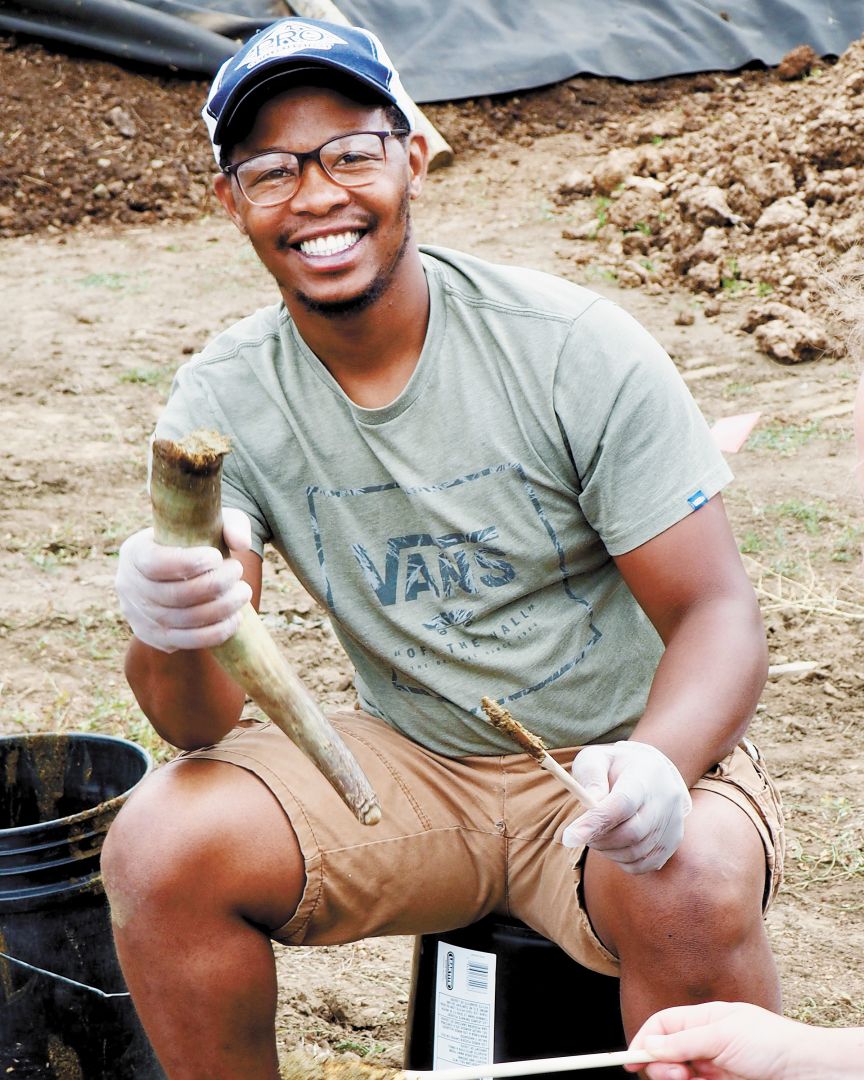
“The winery’s Demeter certification for Biodynamics demonstrates the investment being made to differentiate Troon and signals an enduring commitment to sustainable winegrowing,” Danowski continued. “Innovators like Craig and his colleagues at Troon are expanding the market for Oregon wine by building on the state’s reputation for Pinot Noir with superbly crafted Syrah, Grenache and Tannat.”
Camp has fun in his role, helping create memorable Rhône grape varietals and others unusual for the area with winemaker Nate Wall. The estate Vermentino, Kubli Bench Rolle (the Rhône interpretation of Vermentino) is aged on lees for one and a half years. The Grenache is wildly popular, and the Kubli Bench blends remain a staple of local restaurants, such as Peerless in nearby Ashland.
At Troon, they co-ferment whenever possible in the true Côte-Rôtie style with a little Viognier to round out the Grenache and Syrah. Troon even makes an “orange” wine, aged in clay amphorae, with a fanatical following. They’ve been experimenting with bubbles, not to mention a piquette (low alcohol) and pétillant naturel (wine continues to ferment in bottle causing carbonation) made with Tannat and cleverly named Pét tanNat.
As the winery builds on its new tradition of sustainability, consumers can savor the success thus far. No doubt, the proof is in the pudding, or rather, palate.


